Xinjiang: China's Muslim camp spending 'revealed'
- Published
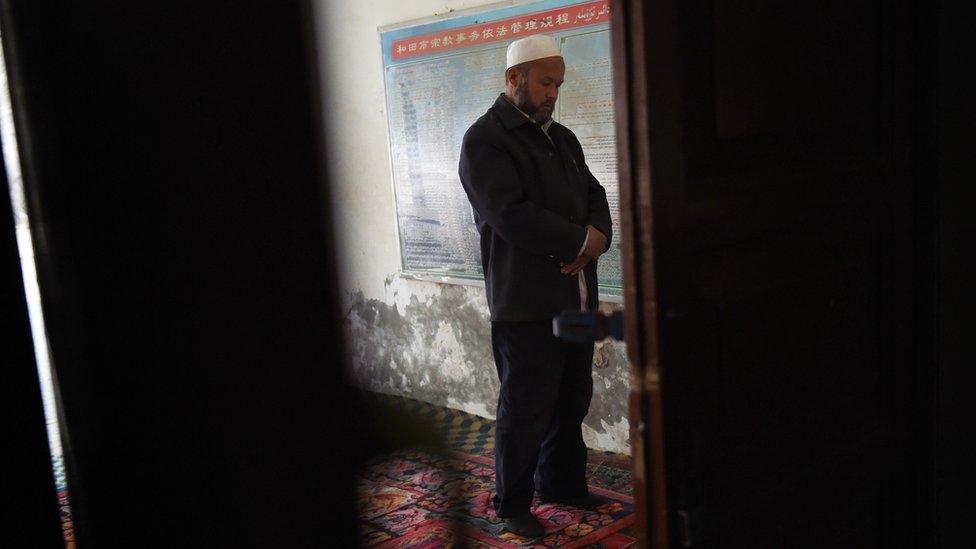
China is accused of detaining huge numbers of Uighurs and other Muslims in Xinjiang
China massively increased security spending in 2017 in the far-western region of Xinjiang, where hundreds of thousands of Muslims are alleged to have been detained, a new report says.
Spending in areas "that explain nearly all security-related facility construction" rose by 213% between 2016 and 2017, said the US-based Jamestown Foundation.
Satellite data shows a spike in new security facilities in 2017.
China says they are training centres.
But according to budget data reviewed by German academic Adrian Zenz for the report, external, spending on vocational training in Xinjiang actually decreased by 7% in 2017.
Spending on security-related construction, meanwhile, increased by nearly 20bn yuan ($2.9bn).
Xinjiang's budget figures "reflect patterns of spending consistent with the construction and operation of highly secure political re-education camps designed to imprison hundreds of thousands of [Uighurs] with minimal due process," Mr Zenz said.
Mr Zenz has previously suggested, based on local government tendering documents, that at least several hundred thousand and perhaps over a million Uighurs and other Muslim minorities could have been detained in Xinjiang.
Such estimates were also quoted at a UN human rights panel earlier this year. China denies the facilities are internment camps.
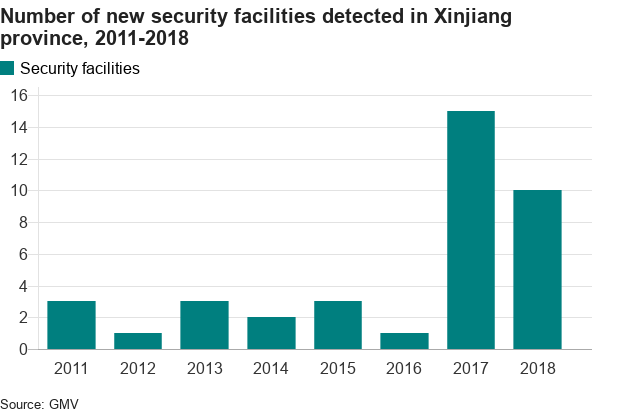
The top official in the region has instead said that a "vocational education and training programme" helps people to "reflect on their mistakes and see clearly the essence and harm of terrorism and religious extremism".
According to regional officials, classes are given on Chinese history, language and culture.
Former Uighur detainees now living overseas have told the BBC that they had to sing Communist Party songs in the camps, and recite laws accurately or face beatings. One man said he was detained in 2015 after police found a picture of a woman wearing a face veil on his phone.
Mr Zenz, an anthropologist and expert on Chinese ethnic policy at the European School of Culture and Theology in Germany, also found the camps were built by the same organisation that oversaw China's now-abolished labour re-education system.
Separately on Tuesday, China's human rights record was reviewed at the UN Human Rights Council in Geneva.
In response to British, French, German and US concerns about the suspected mass detentions, Chinese representative Le Yucheng said his country "will not accept politically-driven accusations from a few countries that are fraught with biases".
John Sudworth reports from Xinjiang, where all filming and reporting by foreign media is tightly controlled
He insisted that China must be free to "choose its own path" when it came to human rights.
The US has said it would consider sanctioning China over its policies, which Human Rights Watch says violate the rights to freedom of expression, religion and privacy.

Who are the Uighurs?
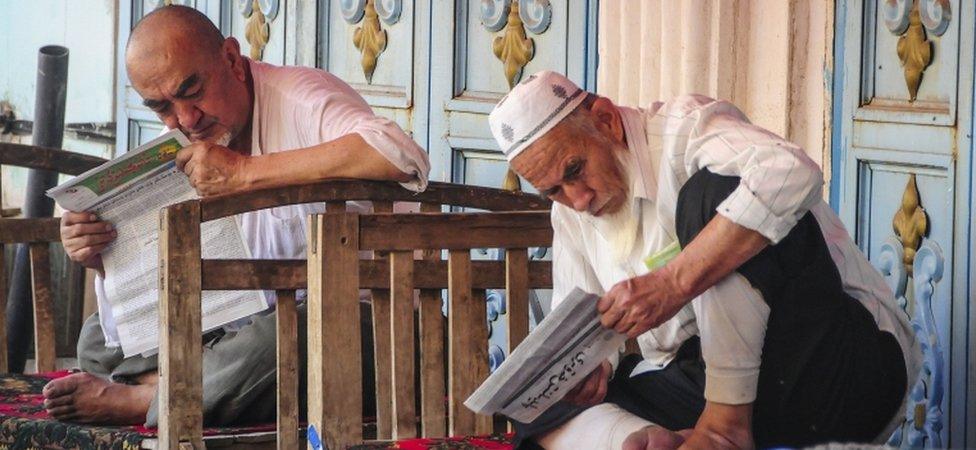
The Uighurs are ethnically Turkic Muslims mostly based in Xinjiang. They make up about 45% of the population there.
They see themselves as culturally and ethnically close to Central Asian nations, and their language is similar to Turkish.
In recent decades, large numbers of Han Chinese (China's ethnic majority) have migrated to Xinjiang, and the Uighurs feel their culture and livelihoods are under threat.
Xinjiang is officially designated as an autonomous region within China, like Tibet to its south.
- Published16 October 2018
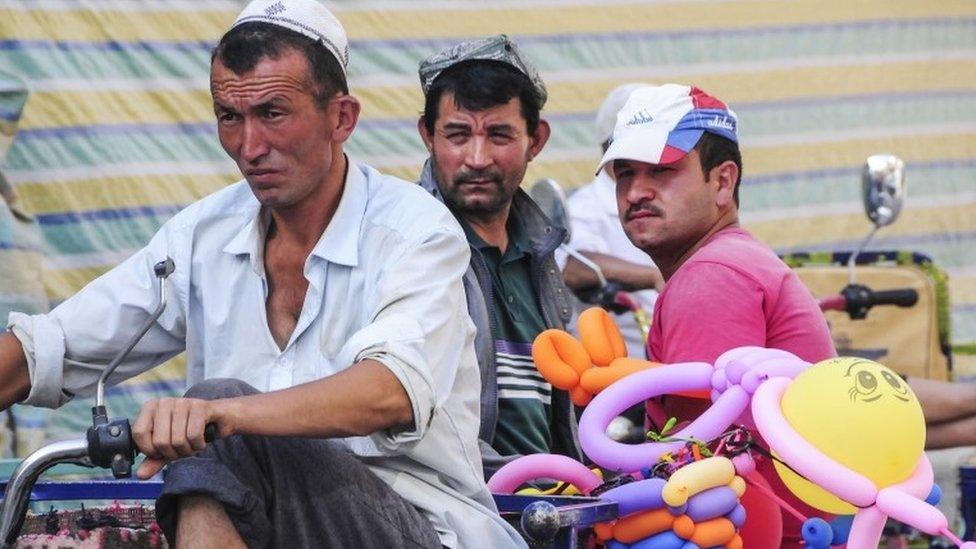
- Published10 October 2018
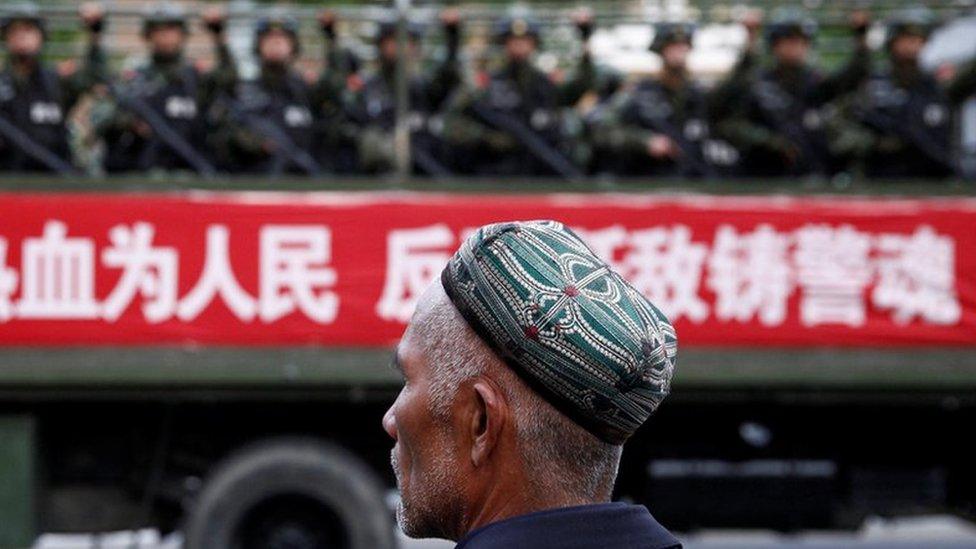
- Published12 January 2015
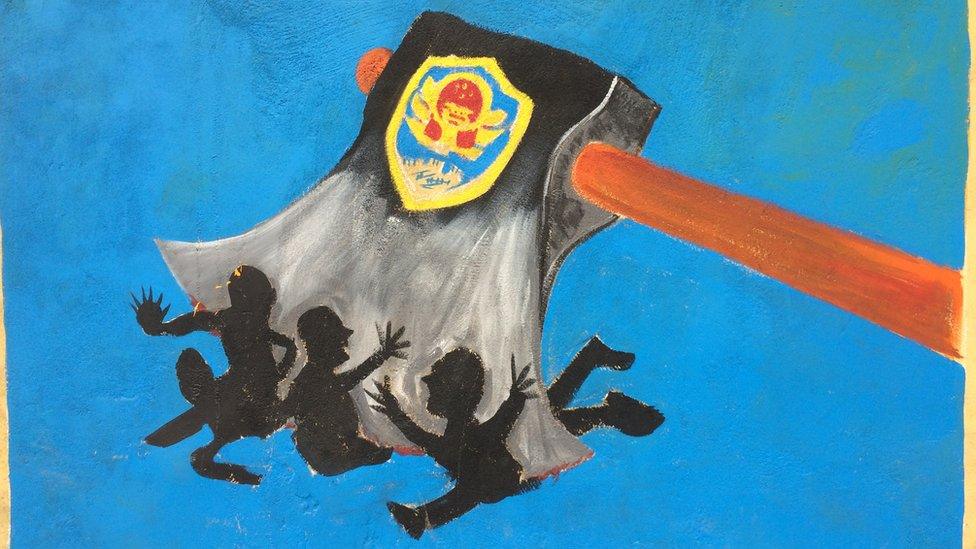
- Published2 March 2017